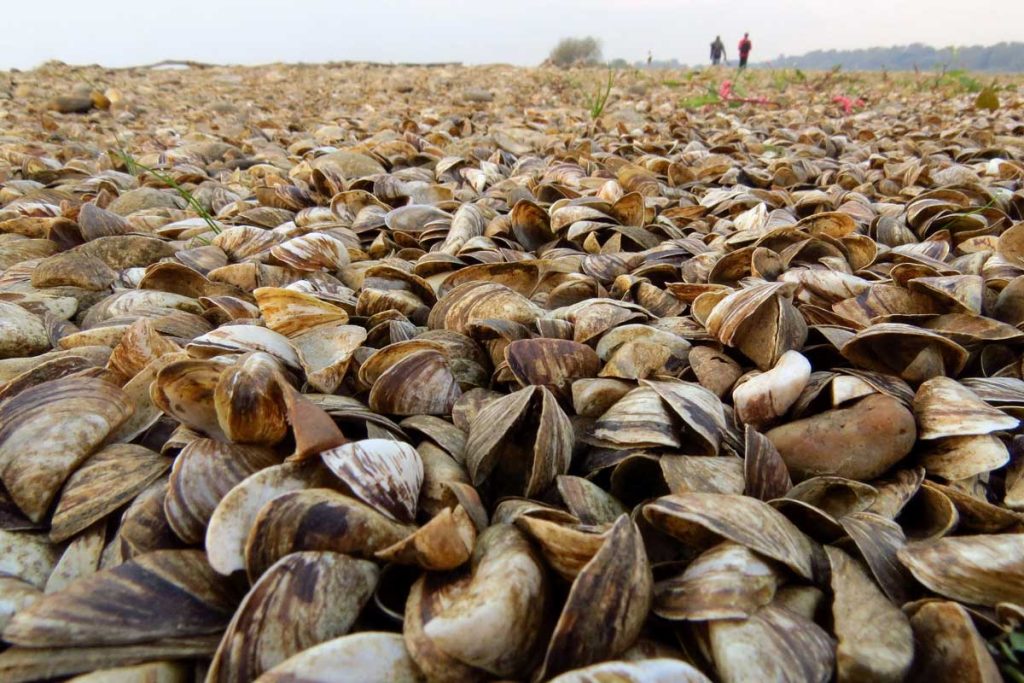

Zebra and Quagga mussels are among the most destructive and expensive invasive species in North America. Large landscapes and water basins across the western US are still free of these costly invasive species. Western agencies and organizations have invested considerable time and energy over the last decade to develop institutional capacity and cross-jurisdictional coordination to prevent and manage the spread of these and other aquatic invasive species. Today’s webinar will highlight two programs intended to protect the uninfested west from zebra and quagga mussels and other aquatic Invasive species.
Abstract – In December 2021, the Pacific States Marine Fisheries Commission (PSMFC) has initiated a Call Before You Haul pilot program to prevent delays during the transport of watercraft destined for the states of Washington, Oregon, Idaho, and Montana. launched. The program has a toll-free number that commercial and other watercraft haulers can call before transporting a boat to Columbia River basin states.
Speaker – Lisa DeBruyckere, President of Creative Resource Strategies
Lisa is President of Creative Resource Strategies, a woman-owned consulting business based out of Salem, Oregon. Lisa has a bachelor’s degree in journalism and bachelor’s and master’s degrees in wildlife management, all from the University of Maine at Orono. Lisa worked in a variety of natural resource and information and education positions for 21 years in Missouri and Oregon before starting her own business in 2001. She is an accomplished public speaker and facilitator and enjoys the challenges and rewards of bringing stakeholders with diverse interests together to develop a shared vision. Lisa is passionate about the need to wisely manage and conserve natural resources and to ensure the public has information to support sound policy and management decisions. Lisa is a Courtesy Faculty member of both the College of Earth, Ocean and Atmospheric Sciences and the Environmental Sciences Graduate Program at Oregon State University. She has been working with the western states and Canadian provinces on aquatic invasive species issues for more than 20 years.

Abstract – Quagga mussels were first detected in Lake Powell in 2013 and there have been thousands of adult quagga mussels found attached to canyon walls, the Glen Canyon Dam, boats, and other underwater structures. Adult mussel populations have expanded rapidly in the last few years. Utah and the National Park Service, and their partners, have implemented a containment program for watercraft to prevent the movement of invasive mussels into Utah and the large multi-state uninfested area of the Western U.S. Containment of infested waters is a shared responsibility that must be done in tandem with prevention consistently across jurisdictions to avoid new infestations. Lake Powell is a multi-jurisdictional water that crosses two states, with multiple federal, state, tribal, and local governing entities. Nate will describe the containment program in place at Lake Powell along with the prevention program throughout Utah, and the importance of collaboration, communication, and long-term federal funding and implementation capacity.
Speaker – Nathan Owens, Aquatic Invasive Species Coordinator and Boating Access Coordinator for the Utah Division of Wildlife Resources
Nate joined the Utah Division of Wildlife Resources’ Aquatic Invasive Species Program six years ago and has served as the statewide program coordinator for five years. During that time, he led the effort to transfer the statewide watercraft interdiction program to the Law Enforcement Section, coordinated research to address regional priorities, and served on the Western Regional Panel’s Executive Committee for two years. Nate’s current areas of focus are exploring regional approaches to invasive mussel management, identifying appropriate applications of eDNA testing to early detection monitoring efforts, and dreaming up ways to best leverage new technology to stop invasive mussels in their tracks!
